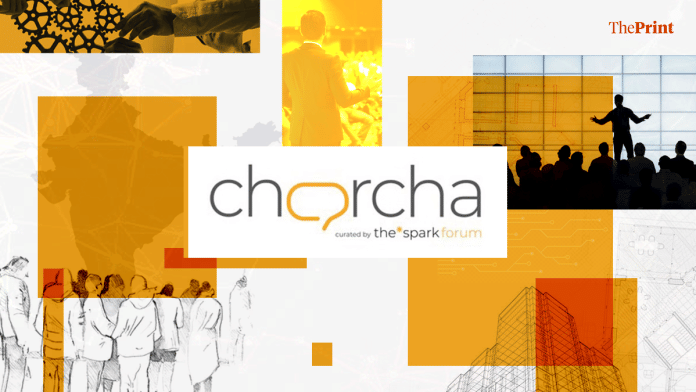India’s development story is often narrated through the lens of the infrastructure we have built: highways that move goods, logistics corridors that connect production clusters, urban housing that expands career opportunity and digital rails that enable identity, payments and access to public services. These investments have reshaped how people participate in the economy and the State. They have made scale possible.
But as India moves into its next stage of growth, the constraints we face are shifting. The pressures on our systems now come from transitions that are far more complex, interdependent and social in nature. Technology is changing how work is organised. Climate stress is altering agriculture and supply chains. A younger and more aspirational workforce seeks continued upward mobility, not subsistence. Markets are penetrating deeper into rural and peri-urban India, bringing both possibility and precarity.
In this context, progress is no longer determined only by how much we build. It is determined by how well the different institutions of Indian society work together and collaborate. The question is not whether we have ideas, resources or intent. We have all three. The question is whether the state, civil society and markets or samaaj, sarkar and bazaar, are able to align their actions with each other in ways that prevent duplication, reduce friction and allow solutions to endure.
Put simply: the constraint ahead is coordination.
Today, government departments, social sector organisations, philanthropies and enterprises are all working on overlapping challenges, be it improving learning outcomes, strengthening health delivery, enabling dignified livelihoods, building local enterprise capability or expanding access to finance, to name just a few. Yet these efforts are often designed and implemented in parallel. Each tends to operate in isolation, with varying timelines and differing vocabularies or taxonomies. However, what is encouraging is that we are starting to witness newer kinds of partnerships between governments and philanthropies, between entrepreneurs and communities, and these have shown what alignment can achieve.
To achieve Viksit Bharat @2047 in a way that is equitable, inclusive and resilient, we must treat collaboration not as goodwill but as infrastructure.
This is what I call alignment infrastructure: the institutional, relational and procedural capacity for samaaj, sarkar, and bazaar to diagnose problems together, exchange information transparently, share risk and co-create solutions that last beyond funding cycles and electoral terms. Whilst alignment infrastructure is not physical, it must be just as intentional. It requires investment, design and continuous maintenance.
The need for such alignment is sharpened by the nature of the transitions we are living through. Technology is evolving faster than the institutional systems meant to use it. For digital health, tele-agriculture, skilling platforms or AI-driven business advisory to work, product builders must co-design with frontline workers and communities rather than building in isolation and expecting adoption. In livelihoods, interventions that address skills without market linkages or credit without advisory, inevitably plateau.
Similarly, inclusion and climate resilience are no longer side concerns. Women’s economic participation, the aspirations of young workers entering labour markets and the adaptive shifts required for agriculture in a warming climate now directly shape development outcomes. These cannot be solved by any single sector; they require shared agendas and coordinated strategy.
Even philanthropy and impact investment are changing. The most catalytic funders today are shifting from project-based financing to ecosystem-oriented investment — strengthening state capability, supporting data-sharing infrastructure, underwriting collaborative networks and building institutions that endure. But for such capital to be effective, there must be credible spaces where government, civil society and market actors can meet as equals, examine trade-offs transparently and design together.
This is where charcha plays a specific and necessary role.
charcha is not designed as a stage for speeches, announcements or thematic celebrations. The purpose is work. It is a space where people who are already embedded in the systems that shape India’s development can speak openly about what is working and what is not; where incentives and assumptions can be surfaced rather than ignored; where the practical realities of implementation can inform strategy; and where partnerships can form based on shared purpose rather than transactional necessity.
In a charcha setting, government leaders are not asked to perform as authority figures, nor entrepreneurs to perform as innovators, nor civil society to perform as moral agents. Instead, they operate as peers in a shared problem-solving environment. The goal is not consensus for the sake of it but for clarity: on where alignment already exists, on where it needs to be built or strengthened and where honest differences must be acknowledged.
This is what alignment infrastructure looks like in practice: structured, repeatable, trusted spaces that enable institutions to cooperate with intentionality rather than convenience.
As India prepares for the decades ahead, the most important question is not whether we can grow — it is a given that we will! The question is whether that growth will be broad-based, resilient and capable of absorbing the shocks that inevitably accompany global transition. That depends on our ability to strengthen the connective tissue between institutions, i.e. the habits, norms, platforms, and relationships through which we collaborate.
We already know how to build highways, digital identity systems and logistics frameworks at population scale. The challenge before us now is to build something more subtle and more demanding: the capacity to work together intentionally and deliberately, not incidentally.
charcha is one small contribution to this task. Not a grand solution, but a steady one — a room where India’s thinkers, doers and funders come to think and act together. If we treat collaboration as infrastructure, not sentiment, it will shape not just how fast India grows but how well that growth is shared.
charcha 2025, an initiative by the*spark forum, will be held at India Habitat Centre, New Delhi, from November 12–14, 2025. To know more, visit: charcha25.thespark.org.in
Jerold Pereira is Managing Director, the*spark forum. Views are personal. ThePrint is a media partner for charcha, organised by the*spark forum.
Also Read: Viksit Bharat 2047 — the state as platform, the civil servant as builder






